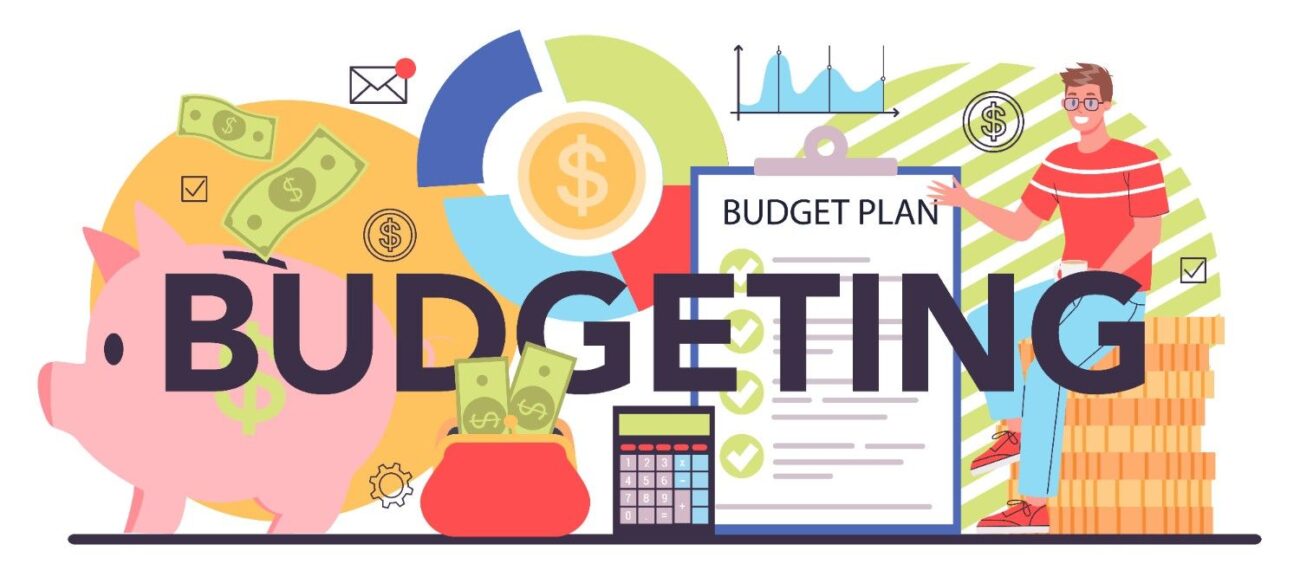Debt feels like a weight that follows you everywhere. Isn’t it right? Whether it’s credit cards, personal loans, or EMI debt, it can be scary and stressful. But here is the good news. You don’t have to live under the pressure forever. The key to being debt-free is smart budgeting.
Here we will be explaining the steps on how to take control of your money, how to budget smartly, avoid debt and build a financial plan that works.
Know where your money goes
Before you can start with smart budgeting, you need to know your money. Track every source of income and every expense. Include rents, bills, groceries, subscriptions and even small daily purchases like coffee or snacks. Seeing where your money goes helps you follow budgeting tips to stay debt-free. It shows you what is necessary and what can be reduced or removed.
Set Clear financial goals
What are you trying to achieve with your money? Are you saving for a new phone, a vacation, or paying off debt? Maybe you want an emergency fund in case of unexpected expenses. Setting clear goals helps with smart money management for paying off debts. When you know your goals, it is easier to make decisions and stick to your budget.
Make a simple, realistic budget
A budget is never a punishment. It is a plan. Divide your money into three parts: essentials, savings, and fun spending. A realistic budget helps you follow budgeting strategies for financial freedom. Don’t make it too strict, leave space for small joys so that it would be easy to stick with.
Pay off debt first
Debt repayment should be a priority. Focus on high-interest debts first, like credit cards, while paying at least the minimum on others as well. In this case, you can also try the snowball method (paying off smaller debts first to build motivation). Prioritising debt is an important part of how to budget smartly and avoid debt. Paying off even a small amount every month reduces stress and frees up money for other goals.
Automate payments and savings
Set up automatic transfers to savings for savings and automatic payments for bills and debts. This ensures you don’t miss payments and helps you save consistently. Using smart budgeting this way makes it easier to stick to your plans without thinking about it all the time. Automation creates good habits that prevent debt from piling up.
Track your spending regularly
Check your spending each month. Compare it with your budget. Are you spending too much on snacks or entertainment? Is it possible to cook more at home instead of eating out? Tracking regularly is one of the most effective smart budgeting tips to stay debt-free. It helps you stay on track and make adjustments before problems grow further.
Use simple tools
You don’t need complicated applications. A notebook, spreadsheet, or simple budgeting app can help you track income and expenses. Tools make smart money management for paying off debt easier because you can see your progress clearly. This way helps you plan better and avoid further mistakes
Create an emergency fund
Unexpected things do happen to all of us. It can be medical bills, car repairs, or sudden emergencies. Having an emergency fund means you won’t have to borrow or use credit cards. Adding this to your financial freedom budgeting is super important. Start small with 500 or 1000 rupees a month. Over time, it becomes a safety net.
Cut unnecessary expenses
Look for money leaks. Check on subscriptions you don’t use, frequent takeout or daily coffee runs can also add up, so check with that as well. Cutting these can save money for debt repayment or savings. Learning to budget smartly and avoid debt is about being intentional with your money. Small savings can add up over time and create a huge difference.
Stay motivated
Budgeting and debt repayment are long-term habits. Celebrate small wins like paying off a credit card or reaching a savings milestone. Seeing progress keeps you motivated. Consistency is key to smart budgeting. Every small step today takes you closer to financial freedom tomorrow.
Keep learning
Even if you follow a budget, learning about money will only help you. Read books, follow blogs, or ask a financial advisor questions. This helps you follow effective budgeting tips to stay best free and improve your smart money management for paying off debts.
Conclusion
Debt doesn’t have to control your life. Using smart budgeting, tracking spending, paying off debts, and building savings are the keys to staying free from financial stress. Remember, budgeting is not about giving up everything you enjoy. Rather, it is about making smarter choices so that you can live comfortably now and secure your future. By using the smart budgeting tips mentioned above, you will create habits that keep you out of debt and give you peace of mind. Start today, even with tiny little steps. Over time, smart budgeting will lead to a debt-free and financially secure life.




